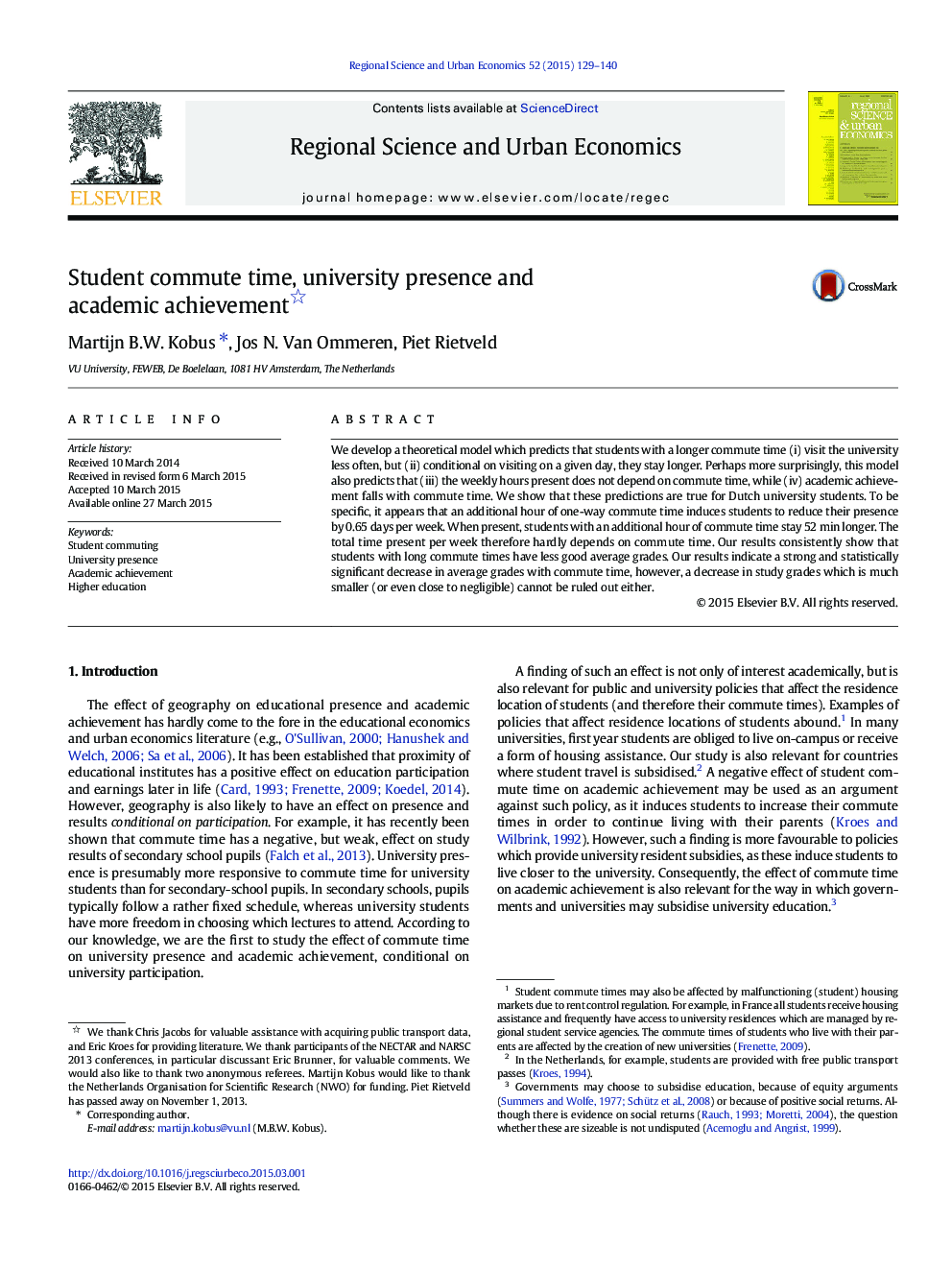| Article ID | Journal | Published Year | Pages | File Type |
|---|---|---|---|---|
| 983880 | Regional Science and Urban Economics | 2015 | 12 Pages |
•We develop a theoretical framework on student commuting•We test for the theoretical predictions using information on Dutch university students•Students with long commute times visit the university less often, but stay longer when present•Commute time does not (or hardly) affect the number of weekly hours present•We have evidence that students with long commute times have lower average grades, but the magnitude of this effect is unclear
We develop a theoretical model which predicts that students with a longer commute time (i) visit the university less often, but (ii) conditional on visiting on a given day, they stay longer. Perhaps more surprisingly, this model also predicts that (iii) the weekly hours present does not depend on commute time, while (iv) academic achievement falls with commute time. We show that these predictions are true for Dutch university students. To be specific, it appears that an additional hour of one-way commute time induces students to reduce their presence by 0.65 days per week. When present, students with an additional hour of commute time stay 52 min longer. The total time present per week therefore hardly depends on commute time. Our results consistently show that students with long commute times have less good average grades. Our results indicate a strong and statistically significant decrease in average grades with commute time, however, a decrease in study grades which is much smaller (or even close to negligible) cannot be ruled out either.
